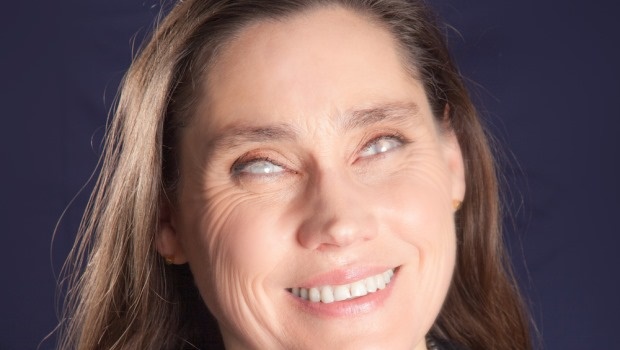
When she lost her sight 25 years ago, Lois Strachan remembers feeling angry and confused.
“I couldn’t understand why it had happened,” she recalls.
“Very soon I realized I had a choice: I could go home and give up, essentially handing control of the rest of my life to my blindness; or I could take back that control and find out what was still possible for me as a blind person living in a sighted world.”
She lost her sight at the age of 21 as a result of Type 1 diabetes. A year of laser treatments and six surgical operations unfortunately couldn’t save her sight.
At the time she was studying ancient history and had ambitions of becoming an archaeologist. Although this dream wasn’t fulfilled, Lois didn’t allow what had happened to her to keep her from finding new purpose.
The 46-year-old from Cape Town is a disability consultant, speaker, author and blogger. She’s defying the odds and living her life to the full.
“My blindness allowed me to fulfil a dream I’d had since I was a child but had never had the courage to do – the first thing I did after losing my sight was to join a rock band and playing music is still a fundamental part of my life.”
Since losing her sight Lois has achieved a Bachelor of Arts, majoring in English literature and classical civilisations, as well as an Honours degree in classical civilisations from the University of KwaZulu-Natal. She also has a diploma in practitioner coaching skills, a certificate in human resource management from Unisa, and is a distinguished toastmaster.
It was her proficiency as a toastmaster which made her realize she could use this skill to help others. “I’ve been involved in coaching and mentoring for many years through Toastmasters International, an organisation that teaches effective communication and leadership skills. I’ve also always tried to use those skills to help others who are visually impaired,” she explains.
“For many years people have been telling me I should share my personal story as a way of inspiring others. My aim is to bridge the gap of understanding that so often prevents the inclusion of persons with disabilities into the community and the workplace.
“I also talk on topics like the impact of technology on the lives of those with disabilities, making the physical and digital work environment accessible, and I offer training to help customer service agents feel more comfortable engaging with a customer who is differently abled.”
To assist her in living her life as anyone with sight would, Lois relies on her guide dog, Fiji, a three-year-old Labrador she’s had for 18 months now. “Fiji allows me to navigate the world beyond my home by helping me avoid obstacles, showing me what’s in the environment around me, like steps and pedestrian crossings, and enables me to do everyday tasks like walking to the nearest shop to buy groceries. She’s a companion and a colleague in all I do,” Lois beams.
But she also relies on technology to do various tasks, from updating her various social-media platforms to checking email and accessing the internet. It’s thanks to technology that Lois has been able to write her books and run her business.
“I use a standard laptop computer with a screen reader application that converts most text that appears on the screen into an audio form. Likewise, my iPhone has a built-in text-to-voice application that enables me to use a wide variety of apps to do pretty much anything a sighted person can do on their smartphone.
“I use a white mobility cane when I travel overseas and in other environments where a guide dog might not be appropriate,” she says.
He journey as an author began in 2014 when she published a series of four illustrated children’s books, The Adventures of Missy Mouse, about a blind mouse who engages with the world around her using her other senses.
“The books are designed to show children that a person who’s visually impaired is simply a ‘normal’ person who does things in a different way,” she says.
But it didn’t stop there for Lois. Her latest publication, A Different Way of Seeing: A Blind Woman’s Journey of Living an “Ordinary” Life in an Extraordinary Way, is partly a memoir. It’s a light-hearted look at her life experience and living without her sight. The 200-page read gives insight into her life and answers questions that people have been asking her along the way.
“The book was written in response to a surprising level of curiosity that people around me showed in how I live my life and do things like use a computer, apply make-up, select my clothing, cook, use social media, use technology, work with my guide dogs, and some of my experiences traveling around the world to experience new cities, new countries and different cultures,” she explains.
Her story is one of encouragement and victory. It’s testament to her daily determination not to allow her blindness to control her life.
“I know there are a few things that aren’t possible for me as a visually impaired person, but there’s so much that I can do, that I decided never to waste my time worrying about the few things I cannot. I believe absolutely that, while I may be disabled, I’ll never be disempowered,” she says.




 Publications
Publications
 Partners
Partners


















